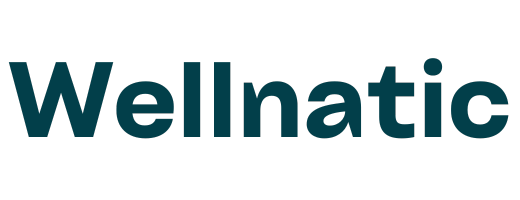Introduction to Journaling
The practice of journaling has a rich history, dating back centuries as a means of self-reflection and personal growth. Initially utilized by philosophers and scholars, journaling served as a way to document thoughts, explore emotions, and analyze experiences. Over time, this form of writing evolved, allowing individuals from various walks of life to engage in meaningful self-exploration. As the understanding of mental health and personal development has advanced, journaling has emerged as a valuable tool for enhancing mental clarity.
Contemporary journaling encompasses a multitude of forms, including expressive writing, bullet journaling, and gratitude journaling, each offering unique approaches to self-reflection. Expressive writing encourages individuals to delve into their inner thoughts and feelings, fostering an atmosphere of emotional release and understanding. Bullet journaling, on the other hand, combines organization with reflection, allowing users to track their goals and experiences in a structured manner. Gratitude journaling focuses on cultivating a positive mindset by prompting individuals to reflect on and appreciate the aspects of their lives that bring joy and fulfillment.
Through these various methods, journaling offers individuals the chance to clarify their thoughts and emotions, leading to enhanced mental clarity. The act of writing can serve as a powerful outlet for stress and anxiety, promoting a deeper understanding of personal challenges and aspirations. By engaging in regular journaling, people can cultivate a greater sense of self-awareness and resilience in the face of life’s demands. This section will further explore the numerous benefits that journaling brings to mental clarity and how individuals can incorporate this transformative practice into their daily routines.
Understanding Mental Clarity
Mental clarity refers to the ability to think clearly, make sound decisions, and effectively process information. It is a vital aspect of cognitive functioning that influences various elements of daily life, including decision-making, emotional resilience, and overall productivity. When an individual possesses mental clarity, they can navigate complex situations with confidence and poise, which often leads to improved outcomes in both personal and professional domains.
The importance of mental clarity cannot be overstated. It plays a crucial role in enhancing one’s ability to assess situations objectively and act accordingly. Individuals who experience high levels of mental clarity often report greater emotional well-being, as they are better equipped to handle stress and challenges. Conversely, a lack of mental clarity can lead to significant hurdles. Individuals may find themselves feeling overwhelmed, confused, or unable to concentrate, which can impede effective decision-making and lower productivity levels.
One of the common challenges associated with diminished mental clarity is the tendency to become easily distracted. In an age where information is constantly at our fingertips, the sheer volume of stimuli can create a chaotic cognitive environment. This perpetual state of distraction can lead individuals to lose sight of their priorities, thereby exacerbating feelings of confusion and anxiety. Additionally, mental clutter, stemming from unprocessed thoughts and feelings, can further hinder one’s ability to maintain focus.
Ultimately, fostering mental clarity is essential for navigating the complexities of daily life. By addressing the underlying factors that contribute to mental fog, individuals can cultivate an enhanced state of awareness, enabling them to thrive amid challenges and uncertainties.
The Science Behind Journaling
Journaling is more than a simple act of writing; it embodies a profound psychological and neurological process that engenders enhanced mental clarity. Research substantiates that engaging in expressive writing catalyzes cognitive processing and emotional regulation. Studies have indicated that journaling can significantly reduce anxiety levels, increase feelings of empowerment, and foster a greater understanding of one’s thoughts and emotions.
One renowned study, conducted by James Pennebaker, highlighted the benefits of expressive writing on mental health. Participants who engaged in journaling about their emotions experienced notable improvements in psychological well-being compared to those who did not. Pennebaker found that this form of writing allows individuals to process their experiences, integrating complex emotional responses into a coherent narrative. This cognitive processing leads to reduced stress levels and improved memory functionality, directly influencing mental clarity.
Neurologically, journaling activates brain regions responsible for self-referential thoughts and emotional regulation. Neuroimaging studies reveal that writing activates the prefrontal cortex, which is integral to executive functions such as planning, decision-making, and impulse control. By organizing thoughts on paper, individuals can externalize their feelings, leading to a clearer understanding of their inner dialogues. This technique not only enhances emotional awareness but also aids in the modulation of emotional responses.
In addition to psychological benefits, journaling has been shown to foster creativity and problem-solving skills. When individuals articulate their thoughts and dilemmas in a journal, they often discover new perspectives and insights that were previously obscured. This practice of reflection is crucial for cultivating a mental space conducive to clarity, allowing for a more organized thought process and enhanced cognitive flexibility.
Benefits of Journaling for Mental Clarity
Journaling serves as a powerful tool for enhancing mental clarity, providing various benefits that contribute to improved cognitive function and emotional well-being. One of the primary advantages of maintaining a journal is its ability to enhance focus. By regularly writing down thoughts and experiences, individuals can better concentrate on the tasks at hand. This process helps to declutter the mind, shedding irrelevant distractions that might undermine productivity. Notably, studies suggest that individuals who engage in journaling experience sharper focus, allowing them to tackle complex problems more effectively.
Additionally, journaling has a significant impact on memory improvement. When individuals write about their experiences, they engage in a mental rehearsal that solidifies memories. This technique aids in retaining information and recalling important details when needed. For instance, students who keep a journal often report better retention of course material, as the act of writing reinforces their learning.
Emotional release is another crucial benefit of journaling. Many individuals struggle to express their emotions verbally, leading to pent-up feelings that may affect mental clarity and overall health. By putting thoughts onto paper, people can process their emotions more effectively, leading to a sense of relief and mental peace. Testimonials from individuals who have dealt with stress and anxiety reveal that journaling acts as a therapeutic outlet, allowing them to confront and articulate their feelings.
Lastly, journaling facilitates the organization of thoughts, a factor that significantly boosts mental clarity. By systematically arranging thoughts, individuals gain a clearer perspective on their goals and challenges. This organizational aspect helps in strategizing approaches to life’s hurdles. A well-structured journal can provide insights that are often overlooked in the chaos of daily life, keeping one mentally agile and open to new possibilities.
Types of Journaling Techniques
Journaling is a versatile practice that can significantly enhance mental clarity. Several techniques cater to different needs and preferences, each offering unique benefits. Among these, free writing, structured prompts, bullet journaling, and reflective journaling stand out as effective methods to facilitate self-expression and introspection.
Free writing involves setting a timer and writing continuously without worrying about grammar or spelling. This technique encourages the flow of thoughts, allowing individuals to bypass their inner critic. To implement free writing, designate a specific time each day when distractions are minimal. Begin by writing whatever comes to mind, and remember, the goal is to express rather than critique. Consider selecting a theme or feeling to focus on, which can help generate ideas and maintain momentum.
Structured prompts provide a more guided approach, stimulating thoughts on specific topics. These prompts can range from questions like “What are three things I am grateful for today?” to more complex topics like “What are my biggest fears?” To effectively use this method, create a list of prompts that resonate with you. Dedicate time each day to select one prompt and write a few paragraphs addressing it. This technique can uncover deeper insights and help organize your thoughts.
Bullet journaling combines organization with creativity, using bullet points, symbols, and drawings to track tasks, events, and emotions. Begin by acquiring a notebook and an array of writing tools. Create an index, future log, and monthly spread to outline goals and priorities. Additionally, use daily logs to jot down tasks and reflect on your feelings. This method is particularly beneficial for visual learners as it allows personal expression alongside structured planning.
Reflective journaling focuses on analyzing daily experiences and emotions. At the end of each day, take a moment to write down significant moments, thoughts, or feelings experienced throughout the day. By reflecting on these experiences, individuals can identify patterns and gain clarity about their mental state. Consider adding questions to your reflection prompts, such as “What did I learn today?” or “How did I respond to challenges?” This practice can lead to increased self-awareness and improved mental clarity.
Creating a Journaling Routine
Establishing a consistent journaling practice is essential for unlocking mental clarity and reaping the numerous benefits that come with it. To begin, it is vital to designate a specific time each day or week for journaling. This timeline will help nurture a habit and ensure that it becomes an integral part of your routine. Whether you prefer early mornings to gather your thoughts for the day or quiet evenings to reflect honestly on your experiences, the key is consistency.
Choosing the right environment also plays a crucial role in fostering a successful journaling routine. An ideal location is a setting that is both comfortable and free from distractions. This might be a cozy corner in your home, a favorite café, or a serene outdoor space where you feel relaxed and focused. The environment can significantly influence your ability to express yourself freely and authentically on paper.
Additionally, many individuals face obstacles like writer’s block or procrastination when it comes to journaling. To combat these challenges, it is helpful to start with prompts or guiding questions. These can serve as a catalyst to stimulate thoughts and allow for a more fluid writing process. Rather than feeling overwhelmed by the blank page, consider setting a timer for 10 to 15 minutes to write anything that comes to mind, fostering a sense of freedom and creativity. It is also important to remind oneself that there are no rules in journaling; what matters is the act of writing itself rather than perfection.
Overall, establishing a journaling routine can significantly enhance clarity of thought and emotional well-being. By incorporating these practical strategies into your daily life, you can create a sustainable journaling practice that supports your personal growth journey.
Integrating Journaling with Mindfulness
The practice of journaling can be significantly enriched when combined with mindfulness techniques. Mindfulness, the art of being fully present in the moment, complements journaling by allowing individuals to engage deeply with their thoughts and emotions. By integrating mindfulness meditation into the journaling process, practitioners can enhance the clarity of their reflections, leading to deeper insights and understanding.
To begin this integration, one effective strategy is to start with a short mindfulness meditation session before writing. This can be as simple as taking a few minutes to focus on one’s breath, observing thoughts as they arise, and letting them pass without judgment. This practice helps to create a calm and centered mindset, which can result in a more focused journaling experience. As your mind clears, you may find it easier to articulate thoughts and feelings on paper.
During journaling, mindfulness can further be employed by encouraging individuals to write in a non-linear fashion. Instead of adhering to structured prompts or topics, practitioners can freewrite, capturing thoughts as they come. This organic flow can prompt insights that a rigid approach might suppress. Additionally, it may be beneficial to incorporate brief pauses during writing to reflect on what has been penned down. Such moments of contemplation can deepen understanding and promote awareness of unacknowledged emotions or patterns.
An important aspect of this integration is self-compassion. While journaling can sometimes evoke difficult emotions, practicing mindfulness helps cultivate a gentle, accepting attitude towards oneself. Acknowledging feelings without harsh critique can foster an environment conducive to healing and clarity. This supportive approach can ultimately transform both journaling and mindfulness into powerful tools for personal growth.
Personal Stories: Journaling Journey
Throughout history, individuals have turned to journaling as a means of self-reflection and personal growth. The transformative benefits of this practice are exemplified through the stories of various people who have harnessed the power of journaling to achieve mental clarity. For instance, Sarah, a 34-year-old teacher, discovered journaling during a particularly stressful year filled with professional challenges. She began by writing down her thoughts each evening, which enabled her to process her emotions and identify the sources of her stress. Over time, Sarah reported feeling a profound sense of relief, as her journal became a tool for uncovering her desires for balance between her personal and professional life. This newfound clarity allowed her to take steps toward prioritizing her well-being.
Similarly, Mark, a retired veteran, shares how journaling has significantly improved his mental health. After years of grappling with PTSD, he adopted the practice as a therapeutic outlet. Mark highlights how writing about his experiences provided an avenue for understanding his emotions and confronting his past. By documenting his journey, he found a sense of empowerment, which proved vital in his recovery. Journaling helped him articulate feelings he had long buried, and doing so laid the foundation for a better mental state and healthier relationships.
Another powerful story comes from Lisa, a marketing executive who struggled with indecision and self-doubt. Through regular journaling, Lisa was able to map her thoughts and feelings, allowing her to see the patterns that shaped her anxiety. By reflecting on her entries, she started to recognize limiting beliefs and replace them with affirmations, fostering increased self-confidence and clarity about her career aspirations. Lisa’s journey illustrates that the benefits of journaling can vary greatly, showcasing its adaptability in addressing different mental clarity needs.
Conclusion: Embrace the Power of Journaling
In the fast-paced world we inhabit, achieving mental clarity can often feel elusive. However, journaling has emerged as a profound yet simplistic approach to facilitate this quest for clarity. As highlighted throughout this blog post, the act of writing down thoughts and feelings not only fosters organization but also encourages a deeper understanding of oneself. This practice allows individuals to unpack their emotions, articulate their challenges, and recognize patterns that may surface over time.
The multifaceted benefits of journaling are far-reaching. Not only does it serve as a creative outlet, but it also provides a structured format for introspection. Consequently, many individuals experience heightened levels of self-awareness, leading to improved decision-making and emotional resilience. As we have discussed, dedicating time to this practice can empower individuals to process their experiences and effectively manage stress and anxiety, ultimately enhancing overall mental well-being.
It is crucial to recognize that journaling need not be a daunting task; it can take on various forms, from structured prompts to free-flowing thoughts. The important factor is the consistency and intention behind the writing. Readers are encouraged to approach journaling with an open mind, allowing the process to evolve naturally over time. As many have discovered, this individual journey of self-reflection can transform their cognitive approaches towards daily challenges and promote clarity in a cluttered mind.
As you reflect on the insights shared, consider initiating or revitalizing your journaling practice. Invite friends or loved ones to join you in this journey, or engage in online communities that focus on sharing experiences related to journaling. Embrace this transformative tool and unlock the mental clarity that awaits you. Your journey of self-discovery through journaling begins with a single entry; may it lead you toward a clearer, more focused state of mind.




